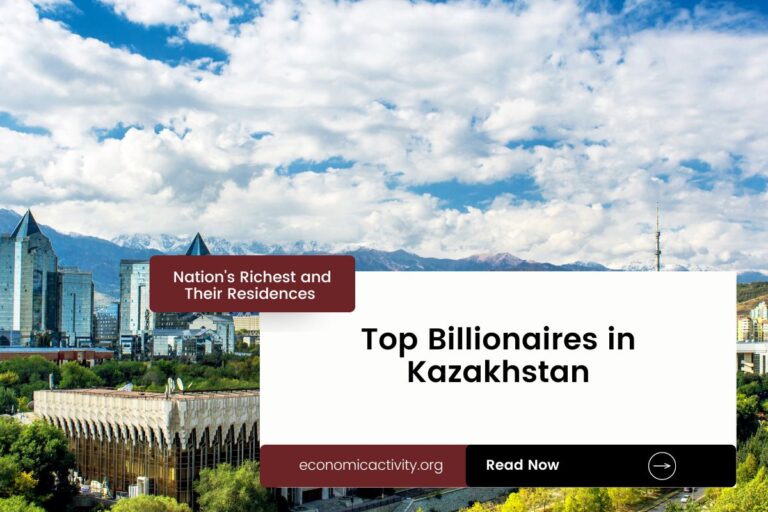Bulgaria, with a population of 6,465,097, is ranked 105th in the world, just behind Serbia. Located in Southeast Europe, it covers 111,000 square kilometers, ranking 99th globally, just below Liberia.
Bulgaria’s economic position in 2022 showcases a GDP of $90,346,169,914.93, ranking 69th globally. It stands behind Venezuela, RB, with a GDP of $92,210,000,000. The GDP per capita for Bulgaria in 2022 is $13,974.45, placing it 63rd worldwide.
Bulgaria lags behind the Russian Federation, which has a GDP per capita of $15,270.71. Despite its ranking, Bulgaria’s economy shows potential for growth and development in the coming years.
What are the economic activities of Bulgaria?
- Primary activities: 4.3% of GDP.
- Secondary activities: 28% of GDP.
- Tertiary activities: 67.4% of GDP.

Primary Sector of Bulgaria
Bulgaria’s primary sector, particularly its agricultural activities, thrives due to its favorable climate and abundant natural resources. With 46.49% of the country’s land dedicated to agriculture, Bulgaria produces a diverse range of crops and animal products. Wheat, maize, sunflower seeds, milk, barley, rapeseed, potatoes, grapes, tomatoes, and chicken are among the top agricultural products.
Despite contributing 4.3% to the GDP, agriculture plays a crucial role in Bulgaria’s economy. The variety of crops and animal products not only sustains the agricultural sector but also provides essential resources for the country’s food security and export industry.
The country’s diverse geology provides a rich array of natural resources, including bauxite, copper, lead, zinc, coal, timber, and arable land. These resources play a crucial role in driving the economy through mining, forestry, and agriculture, contributing significantly to the country’s GDP and employment opportunities.
In addition to its mineral resources, Bulgaria also engages in oil production, with an output of around 1,000 barrels per day. Despite ranking 67th globally in oil production, the country holds reserves of 15,000,000 barrels, representing just 0.1% of the world’s total reserves.
Bulgaria’s natural gas production in 2020 reached 79 million m³, ranking 84th in the world. This gas economic activity contributes to the country’s GDP and employment opportunities, further enhancing its economic stability and growth.
Secondary Sector of Bulgaria
What is the secondary sector or what are secondary activities?
The secondary sector comprises industries that transform raw materials from primary activities into finished products for consumption. In Bulgaria, key industrial products include electricity, gas, water, food, beverages, tobacco, machinery, automotive parts, base metals, chemical products, coke, refined petroleum, nuclear fuel, and outsourcing centers.
Manufactures play a crucial role in Bulgaria’s total exports, accounting for 55.02% in 2023. This highlights their significant contribution to the country’s economic growth and global trade competitiveness.
Tertiary sector of Bulgaria
What is the tertiary sector or what are tertiary activities?
The tertiary sector in Bulgaria encompasses various services that enhance productivity and meet needs through intangible goods like knowledge and expertise. Key activities include healthcare, education, banking, tourism, transportation, and telecommunications. These sectors contribute significantly to Bulgaria’s economy by providing essential services to both consumers and businesses.
Notably, Bulgaria’s economy heavily relies on tourism, contributing significantly to its GDP. With 12,552,000 annual arrivals, equating to 1.9415 arrivals per capita, the industry thrives. The Black Sea resorts like Sunny Beach and the historic town of Nessebar are among the most popular destinations, attracting visitors worldwide.
Another example of tertiary economic activity is the mobile cellular sector, with approximately 8 million subscriptions, fostering technological growth. This connectivity enhances digital services, driving innovation and economic development.
Military Activities and Economic Sectors of Bulgaria
The military is a clear example of various economic activities working together. In the primary sector, resources are extracted for military use. The secondary sector involves the manufacturing of military equipment. The tertiary sector includes services provided by the military, while the quaternary sector focuses on military research and development. Finally, the quinary sector deals with high-level military decision-making and strategy.
In Bulgaria, the military expenditure for 2023 is about 1,918.4 million US dollars, which is 1.50% of the country’s GDP. The active military force consists of 36,950 personnel. This means there are about 5.7 active military members for every 1,000 people in the country.
Biggest company in Bulgaria
Which is the biggest company in Bulgaria? Tchaikapharma High Quality Medicines holds this title, with a market value of 0.68 billion USD. Founded in 1994, it operates in the Pharmaceuticals and Biotech industry, contributing significantly to the secondary economic sector.
International Trade of Bulgaria
Import Activities of Bulgaria

Bulgaria’s high import activities, accounting for 68.99% of GDP, signify its reliance on foreign goods and services for economic growth.
Bulgaria’s key import activities include crude petroleum, natural gas, copper ore, cars, and packaged medicine. Its main import partners are Germany (10%), Russia (10%), Turkey (9%), Romania (7%), and Greece (6%).
Exports Activities of Bulgaria

Bulgaria’s export activities in 2023 reached $47.9 billion, accounting for 69.19% of its GDP. This high percentage highlights the crucial role exports play in driving the country’s economy.
Bulgaria’s export activities are diversified, with key partners like Germany and Romania. The country exports refined petroleum, natural gas, garments, wheat, and refined copper to various countries, including Italy, Turkey, and Greece.
Bulgaria economy challenges in 2024
In 2024, Bulgaria faces challenges with corruption and outdated infrastructure despite economic growth. The country’s reliance on coal and ties with Russia pose risks to its progress towards higher living standards.




Leave a Reply